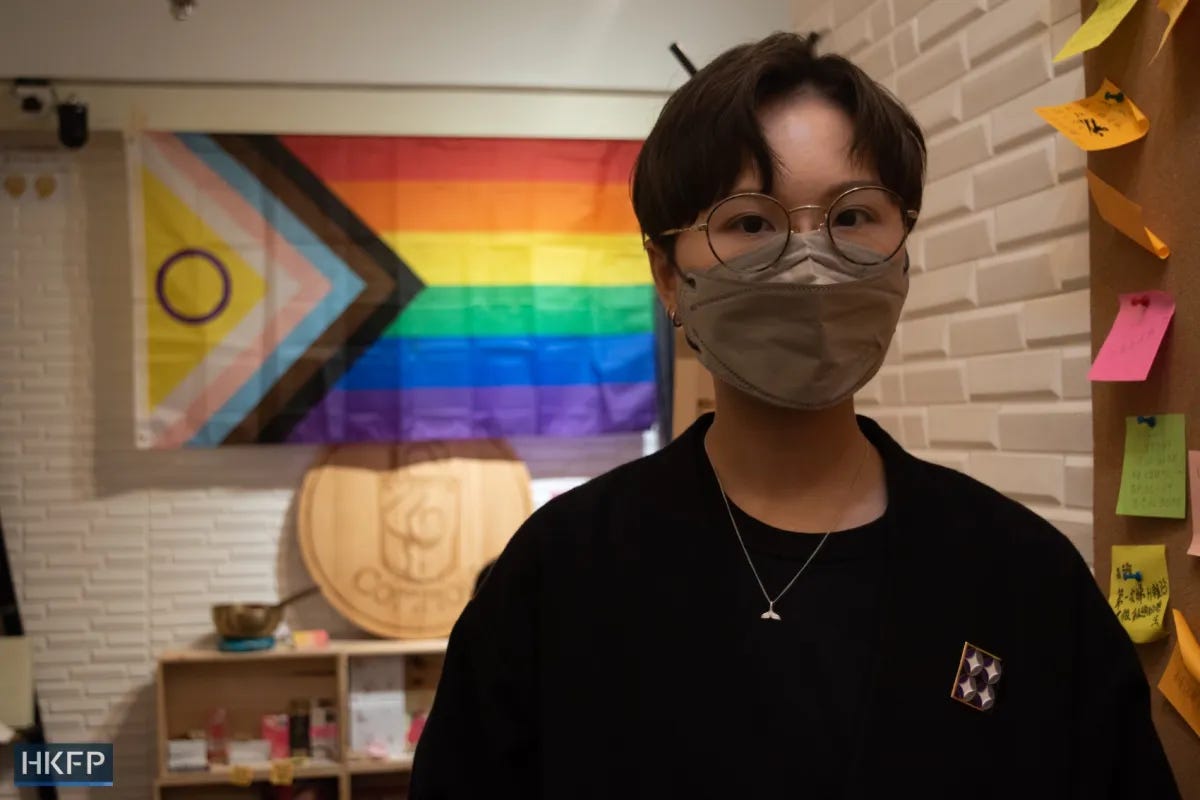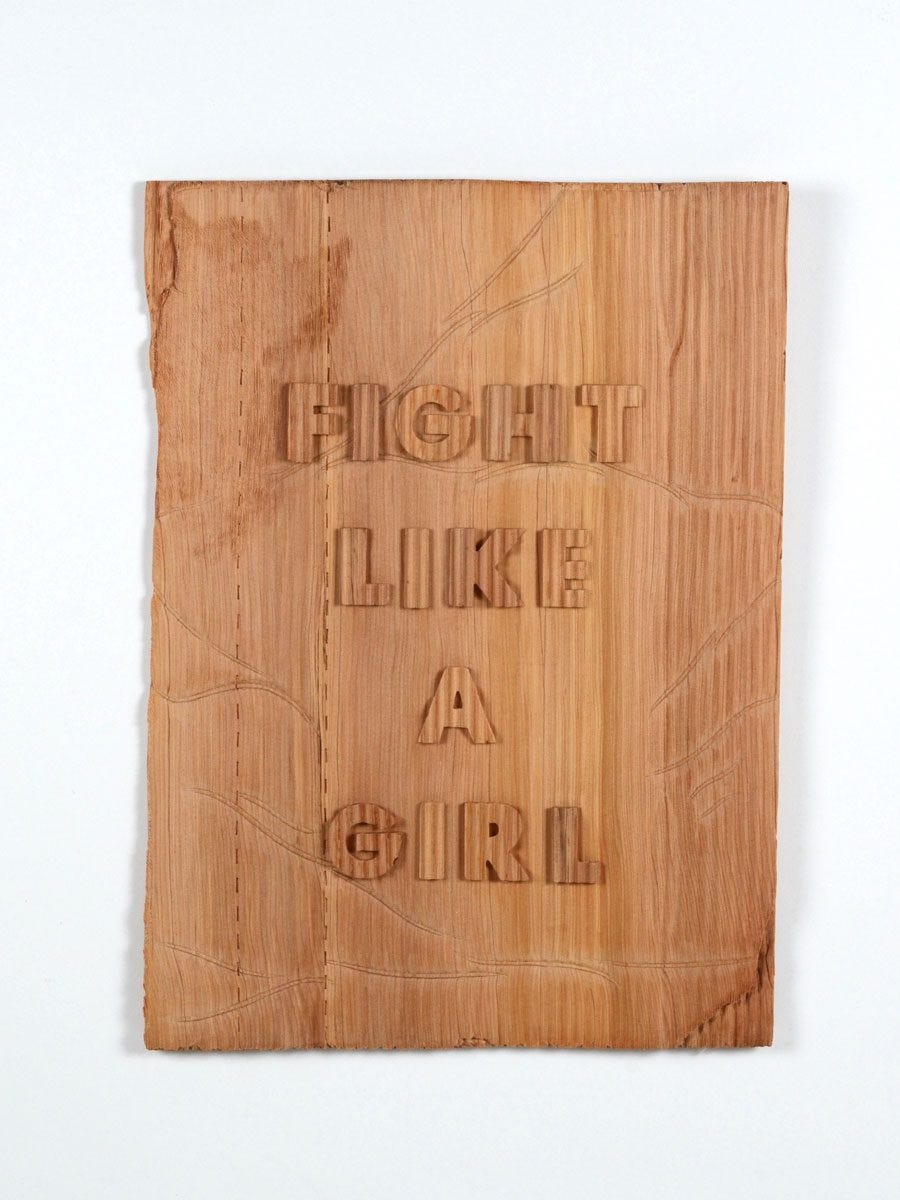Global Roundup: South Korea Inclusive Education, Cuba Women Boxers, Hong Kong Asexual Community, Challenging Images of Muslim Women
Curated by FG Contributor Samiha Hossain
Seniors at a school in Seoul’s Yeongdeungpo District prepare to take a mock CSAT exam on Aug. 31. (pool photo)
The Ministry of Education in South Korea’s announcement of the new school curriculum that has completely deleted words such as “gender equality,” “sexual minorities,” “reproduction rights,” and the word that forms the basis of these terms, “sexuality,” has many Koreans, including educational workers, voicing concern. Many are worried that the revised curriculum will essentially restrict education on gender equality, making it difficult for educators to provide students with the education that they want.
Students ask a lot about what homosexuality is, and if we need to recognize it. They also ask about what makes a healthy, loving relationship. Teaching students about sexuality is a must if we are to let students know that everyone has the right to be sexually satisfied while being free from violence, coercion and discrimination. -Y, educator who has been teaching health for over 10 years in South Gyeongsang Province
Y uses UNESCO’s international sex education guide and sex education materials made by other institutions for their sex education classes. With the help of such materials, Y teaches their students that feelings of sexual attraction and wanting to be in a deep relationship with someone are not limited to people who are heterosexual, but that the same applies for homosexual, bisexual and pansexual people. Also, they teach what rights an individual has when it comes to pregnancy, childbirth, contraception, and abortion, and how the state and society should guarantee such reproductive rights.
Z teaches Korean Literature at a school in the metropolitan area and their classes examine work such as Lady Gaga’s “Born This Way” and “Master Heo’s Wife,” a modern novel that parodies Yeonam Bak Jiwon’s classic work, “The Story of Master Heo.” Z shared that their class watched protein drink advertisements and discussed how differently the male and female models are portrayed in the same advertisement. While the emphasis put on male models is their strength, when it comes to female models, the spotlight is put on their figures. Topics such as gender stereotypes will be difficult to teach if words like “sexual minorities” and “sexuality” are omitted from the curriculum.
We need that education to prevent various types of sexual abuse and hatred towards sexual minorities, but fundamentally, education on sexuality, gender equality, and sexual minorities is key in order to foster democratic citizens who are inclusive. -Son Ji-eun, vice chairperson of the Korea Teachers and Education Workers’ Union
Photo via BBC
A recent rule change by the Cuban authorities will finally allow women to compete in boxing.
Already in her 30s, time was fast running out for Joanna Rodriguez’s shot at an Olympic or world boxing title. Working as a bouncer at a bar at night, she felt she was being forced to choose between her sporting career and putting food on the table. Now though, as the women's leading heavyweight in Cuba, she hopes her name might one day sit alongside those of Cuban boxing greats like Felix Savon or Teofilo Stevenson.
This (new rule) is going to change everything. It could even shift the way of thinking because there is machismo among both men and women here. -Joanna Rodriguez
However, for the woman Joanna calls the pioneer of women's boxing in Cuba – her trainer, Namibia Flores – the decision by the Cuban government came a decade too late. Women's boxing was introduced as an Olympic discipline for the Games in London 2012. A few years after those games, Namibia prepared to leave Cuba to pursue a boxing career abroad. But the lure of family and familiarity back home became too great and she returned to the island soon after. Now too old to be eligible to box competitively for Cuba, she has refocused – or, as she puts it, "adjusted" – her Olympic dream. She hopes to attend Paris 2024 as the leading women's boxing trainer on the island.
It's a bittersweet moment. I'm really happy it's happened, of course. But at the same time, a little sad as I'd hoped it would be my fists, my gloves which would bring Cuba victory. -Namibia Flores
Former Cuban president Raul Castro's wife was the head of the Federation of Cuban Women (FMC) and considered Cuban women's faces too beautiful and precious to be sullied by boxing.
As well as coming to the fight too late, these "boxeadoras" face greater daily challenges than most other competitors. Cuba is in the grip of its worst economic crisis since the Cold War. Essentials like boxing gloves, punching bags and skipping ropes have long been hard to come by. But these days it is tough even to find enough food or vitamins, especially for an elite fighter's regime. Joanna at times has struggled to keep up her training with an eight-year-old daughter to provide for. Still, she says, having been banned from competitions for so long, Cuba's women are used to boxing with one arm tied behind their backs.
Yumi. Photo: Almond Li/HKFP.
Three members of the asexual community in their early 20s in Hong Kong discuss their experiences with HKFP. Kaya, Yumi and PK co-founded an LGBT+ group called A-lephants in September, with a focus on addressing the elephant in the room: asexuality. The three say they only learned of the concept of asexuality in recent years, and found that the label matched their state of mind better than any other terms.
A-lephants is a branch of the Saan Sing Sex and Gender Concern Group, a student group at the Chinese University of Hong Kong which discusses and raises awareness of various issues related to sex and gender. The trio connected through the club and felt the need for a more centred platform to discuss asexuality as they came to know more peers who identified on part of that spectrum.
A-lephants held its first and, it claims, Hong Kong’s first Asexual Awareness Week event in the last week of October. The group teamed up with PrideLab, which was established in 2013, to organize a two-day exhibition and workshop. The occasion included two “human library” sessions, a movement that originated in Copenhagen and aims to challenge stigma and stereotypes by arranging encounters between people who might not otherwise meet and encouraging people, or “human books,” to tell their stories. At A-lephants’ event, members of the asexual community shared their stories and interacted with other attendees.
Yumi was one of the human books. They shared their experience of studying in Taiwan and the process of learning about asexuality. Yumi, who now identifies as asexual-queer, says they were once confused about their sexuality.
An acquaintance once asked me, ‘your nails are really long, are you really a lesbian?' People always joke about fingers being a lesbian’s sex organs. At that time I felt like my sexual orientation, my gender identity were being defined by something highly sexualised. And as I was not interested in sex or romantic relationships, I didn’t seem to fit in to the homosexual community. -Yumi
Cadence is a trans woman who identifies as asexual but aspires to have a romantic relationship. However, the 25-year-old broke up with all her partners because they wanted to have sex despite her disinterest.
Before I started dating my two ex-boyfriends, I told them I did not want to have a sex life. At the time they both said ‘OK, it’s not a problem,’ but after we started dating, they still wanted [to have sex]...Even if I undergo surgery in the future, and can have sex [with a vagina], I will not want it. I’m just not interested in [sex]. -Cadence
Kaya, PK and Yumi said that they felt like asexual people had to constantly justify their absence of desire or interest in sex. Kaya says a close friend from her all-girls secondary school suggested that she may have been “suppressed” by a culture of avoiding discussions about sex when she was younger, and that suppression continued to this day. When PK told zir mother about it, zir mother said: “perhaps you have not met the right person.” It is a comment many aces have heard. Yumi says sometimes people think being asexual is “only a delusion, or a stage,” and may encourage them to visit a doctor or a counsellor if they continue to feel that way.
Though debunking misconceptions can be exhausting, the trio says it also helps them understand who they are and find the courage to be who they are. The asexual community is hopeful of progress as more people come out and come together, allowing a network and a community to emerge.
Protest sign: Fight like a girl, 2021, carved pine(COURTESY OF HUMAIRA ABID)
Humaira Abid talks about her “Fight Like a Girl” exhibit and her upcoming work with The 19th.
For more than two decades, Abid has used her art to explore taboos, defy gender stereotypes, and educate the public about women refugees and social injustice. She was born and raised in Pakistan but is now based in the US, and her work primarily focuses on the challenges that women in South Asia and the Middle East face. She uses miniature paintings and wood carvings, both male-dominated mediums, to highlight issues such as reproductive health, political instability, discrimination and abuse.
With pine-carved protest signs against rape and racism and a mixed-media work about the Afghan girls and women denied schooling, Abid’s latest collection touches on themes pertinent to recent women’s rights demonstrations for education in Afghanistan and against the government in Iran. Called “Fight Like a Girl,” the exhibition was on display at the Greg Kucera Gallery in Seattle through October.
Being a Muslim woman, I always question why is it that when people start paying more attention to religion, they suddenly think of imposing boundaries on women. I question all of this, and “fight like a girl” for me means fighting for equality, fighting for equal rights, fighting just to live your life the way you want to live. -Humaira Abid
Starting in April, Abid’s traveling show “Searching for Home” will be on display at the Museum of Art and Culture in Spokane, Washington. The exhibit explores the global refugee crisis, particularly its impact on women and girls. For this collection, Abid spent months interviewing refugee women from countries including Somalia, Syria and Afghanistan.
Abid shares that she sculpts in wood because it is a male-dominated medium. When she was in art school, she started getting warnings not to take sculpture as her major because it is considered physically challenging. She also faced other challenges like how in a Muslim society, doing three-dimensional art is considered going against Islam.
Abid believes that through its aesthetics and beauty, art has the potential to bring people closer and then open up all these difficult topics.
I also feel sharing experiences and stories are important because when one person shares their story, it gives courage to other people to share their stories as well. And sharing is a step toward discussing the issue and hopefully toward resolution and change. -Humaira Abid
Samiha Hossain (she/her) is a student at the University of Ottawa. She has experience working with survivors of sexual violence in her community, as well as conducting research on gender-based violence. A lot of her time is spent learning about and critically engaging with intersectional feminism, transformative justice and disability justice.
Samiha firmly believes in the power of connecting with people and listening to their stories to create solidarity and heal as a community. She refuses to let anyone thwart her imagination when it comes to envisioning a radically different future full of care webs, nurturance and collective liberation.





